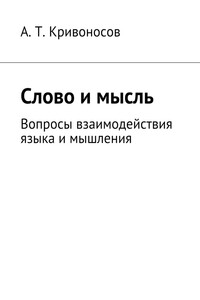10 20
Home exercise. Read some information on Subjunctive Mood with the purpose of its correct translation into Russian.
В английском языке сослагательное наклонение выражено формами be, were; should, would, could, might, употребленными в сочетании с инфинитивом без to и на русский язык зачастую переводится глаголом с частицей «бы» или союзом «чтобы».
В современном английском языке сослагательное наклонение в основном употребляется в трех случаях:
1. После глаголов, выражающих требование, настояние, пожелание, и после безличных предложений, имеющих сходное значение. The chief engineer demanded that they should do it. Старший механик потребовал, чтобы они это сделали.
2. При наличии слов, указы: ающих на определенную степень нереальности высказывания. The limiting current would probably have a very large temperature coefficient. Предельный ток, вероятно, будет иметь очень высокий температурный коэффициент.
3. В условных предложениях II и III типов, соответствующим формулам: II типу — should/would, could, might/'-fIndefinite Infinitive, if+ Past Indefinite.
E. g. If I were in your place I should do it. Если бы я был на твоем месте, я бы сделал это.
III типу —should (would, could, might)+Perfect Infinitive, if+Past Perfect.
E. g. If the electrician had not arrived in time, the fire would have destroyed the whole electrical equipment. Если бы электрик не пришел вовремя, пожар разрушил бы все электрооборудование.
Now translate these sentences.
1. Moreover, I would have taught you how to use this device. 2. At any rate, you could have changed the valves. There were some spare ones in the drawer. By the way, I think you should have done it. 3. I’d like to check on your results. 4. I wish you could use the decimal system.
5. I would like to know dynamics as well as you do. 6. That would not be a bad idea. 7. That would be marvellous. 8. Would five minutes be long enough for you?
11 1
Read the words. Point out Past Indefinite and Participle II: a) knew; b) saw; c) gone; d) bore; e) cast; f) began; g) begun;
h) blew; i) broke; j) chosen; k) driven; 1) chose; m) came; n) fallen; o) fell; p) grew; q) rung; r) risen; s) rose; t) seen; u) shook; v) sunk; w) shook; x) ran; y) tore; z) torn.
12 2
Read the word-combinations and point out the verbs in Active and Passive Voice:
a) I’ve just read; b) have you got; c) what was once considered; d) tubes are being washed; e) do you know; f) you’re a marvel; g) the mine has just been taken to pieces; h) I’ll have to leave; i) he was offered a good job; j) the pressure was checked; k) he thinks; 1) the building’s simply swarming with; m) he keeps saying; n) a talk is being broadcast; o) I’ve been writing; p) how long have you been working; q) the scientific programme is broadcast; r) the engine’s gone wrong.
13 4
Read the sentences and define in each of them the meaning of the word “end”.
1. I think I’m at the end of my rope. I don’t see any way just at present.
2. I must confess I began at the wrong end. 3. This pipe has a dead end.
4. To have gone off deep end on the strength of this suspicion was such a horrible mistake!. 5. I’m thankful for this invitation of yours. I remember with pleasure our having no end of a time at your place. 6. How is he?— Very low in his mind. But he keeps his end up. 7. He slipped the few odds and ends that he had not packed into his bags. 8. I must tell you that if you see such methods you’ll never gain your ends.
Translate at sight the sentences. Mind Infinitive constructions.
1. A two-winding transformer is known to consist of two coils so arranged that the magnetic lines of forces of one coil pass through the other.
2. If a computer is required to make a calculation or to solve a problem, it has to be fed with the necessary information. 3. Overloaded wires are found to overheat, and if the overload is too great, the rubber and cotton insulation burns up arid then the circuit is readily shorted.
4. For a long time the atom was thought to be indivisible. 5. There is a tendency for these tiny (small) currents to cancel one another out.


